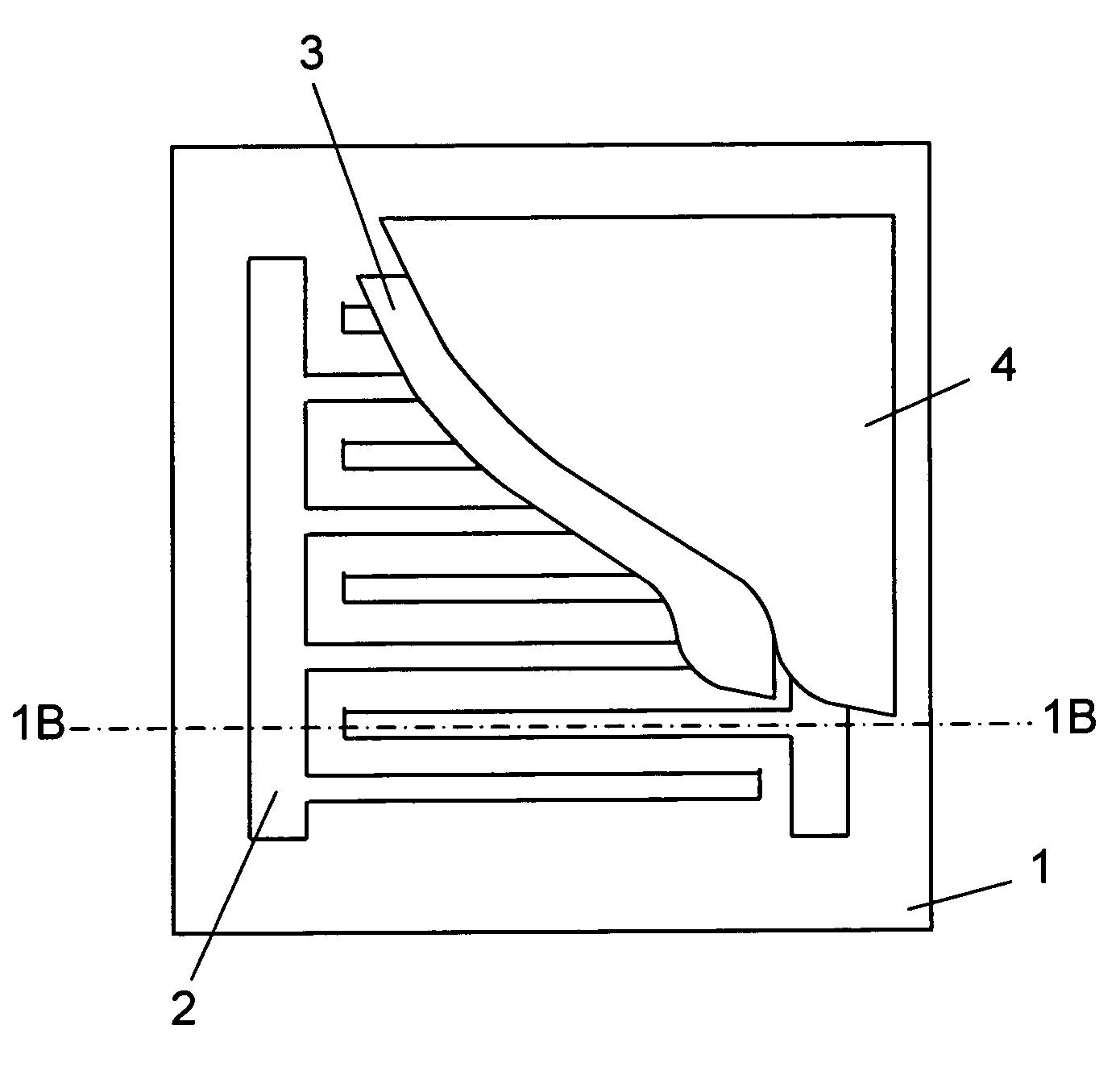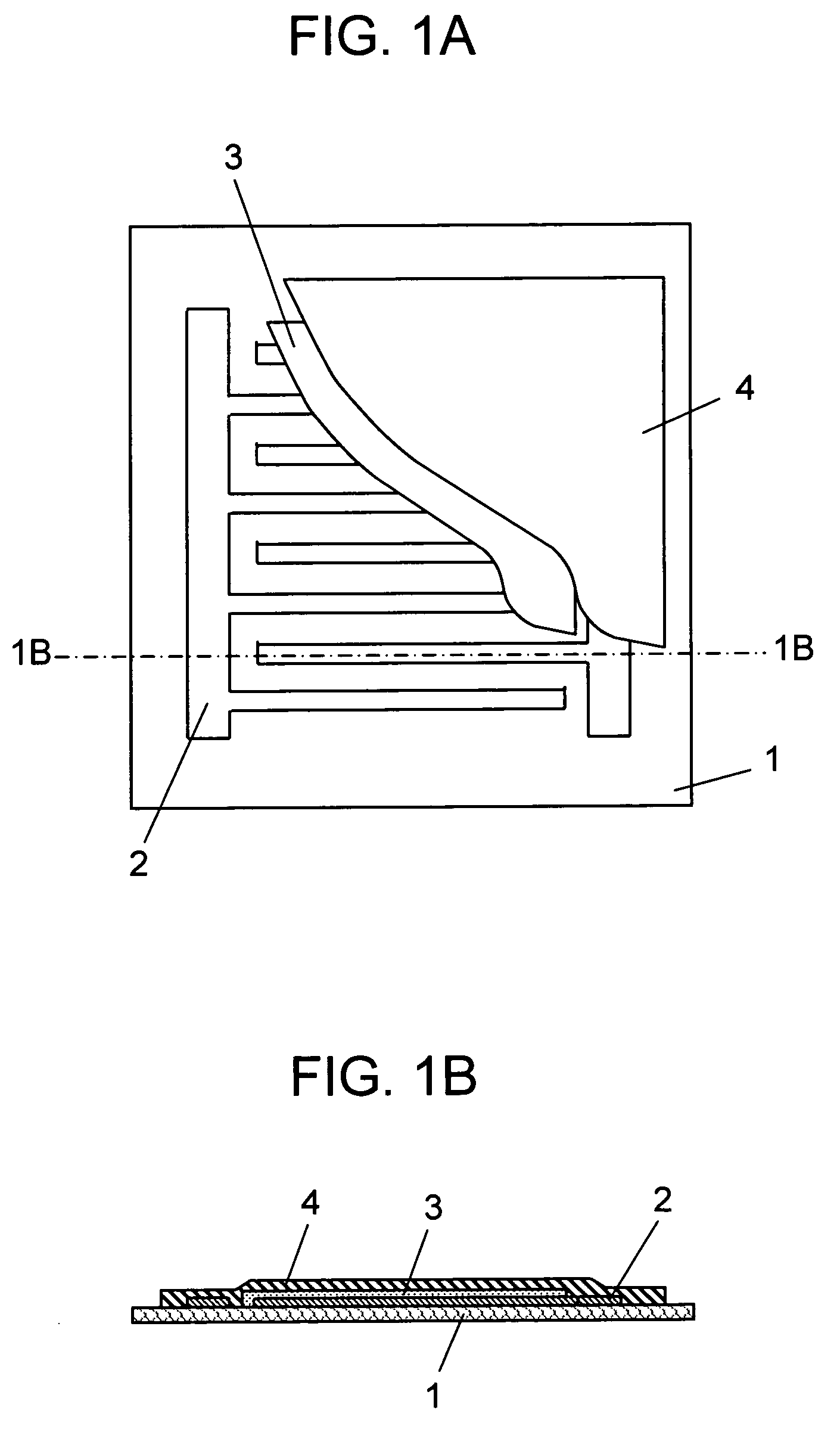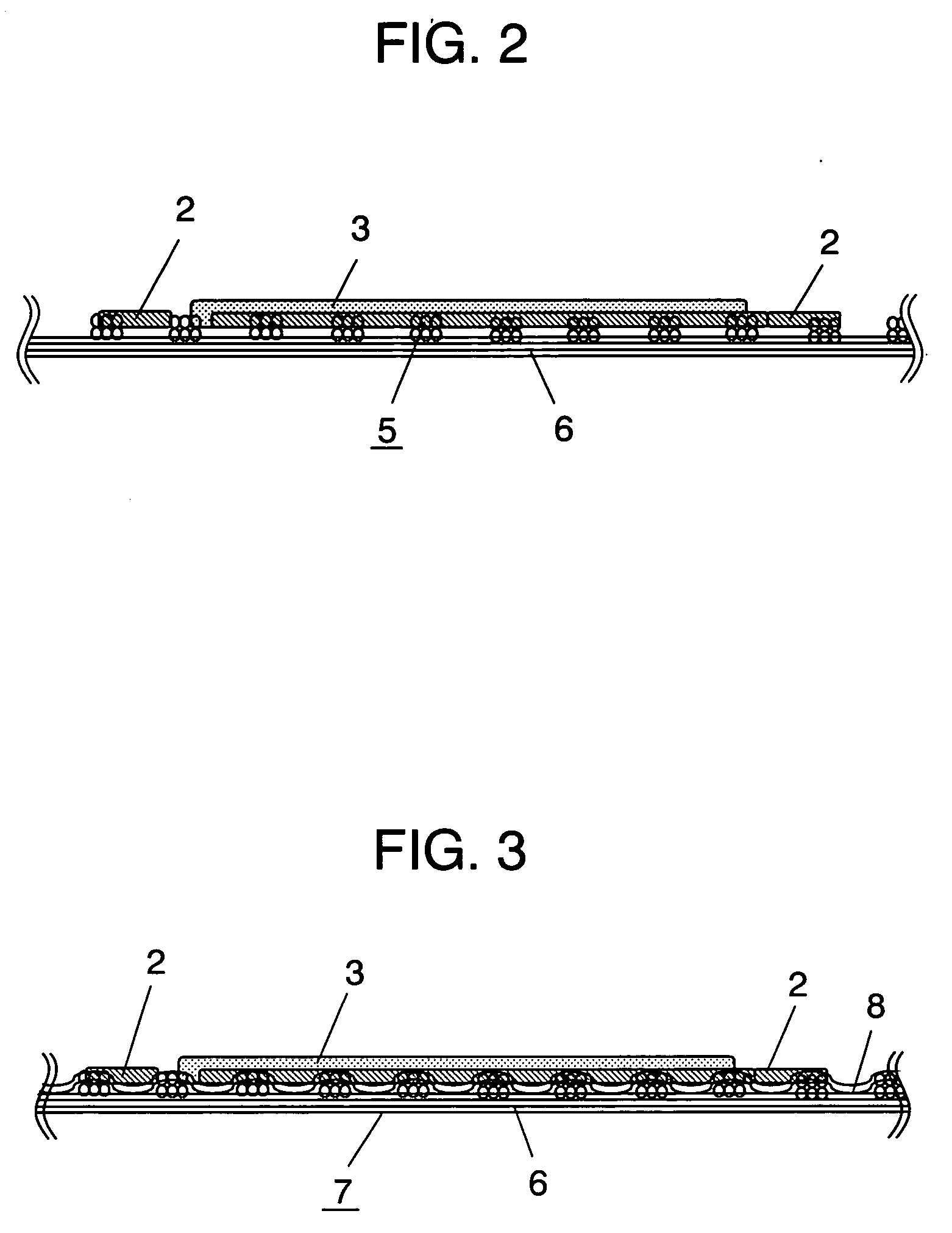Flexible ptc heating element and method of manufacturing the heating element
a technology of ptc heating element and flexible ptc, which is applied in the direction of resistor details, ohmic resistance heating, and positive temperature coefficient thermistors, etc., can solve the problems of not being able to be attached to an object, not being able to be used for application use as a car seat and being fit to a human body,
- Summary
- Abstract
- Description
- Claims
- Application Information
AI Technical Summary
Benefits of technology
Problems solved by technology
Method used
Image
Examples
tenth exemplary embodiment
[0111] The cross sectional structure of a PTC heating element according to a tenth exemplary embodiment is identical with that of the ninth exemplary embodiment. In this embodiment, the resin foam described as the substrate in the seventh exemplary embodiment, or a rubber sheet applied with an adhesive is used instead of cover material 17. Explanations for other constitutions are identical with those in the ninth exemplary embodiment.
[0112] With the constitution as described above, good vibration resistance can be obtained, electrodes 2 and resistor 3 are shielded from external atmosphere and the PTC heating element is applied with flexible and soft feelings of the resin foam or the rubber sheet. Particularly, in a case of using the resin foam, the PTC resistor is put to a highly heat insulative state. Accordingly, it is possible to suppress the sense of warming of a human body to an appropriate range and increase the heat generating temperature of the PTC resistor to suppress the ...
eleventh exemplary embodiment
[0113]FIGS. 9A, B are, respectively, a partially cut-away plan view and a cross sectional view of a PTC heating element according to an eleventh exemplary embodiment. In this embodiment, concave / convex shape 20 formed by engraving is provided over the entire PTC heating element. Engraving is a fabrication method of forming a concave / convex cross sectional shape by pressing using a hot plate having a concave / convex surface. In this embodiment, flexible substrate 1 may not always have an ink impregnating property. That is, it may be a flexible film including, for example, ethylene vinyl acetate resin, urethane resin, ester resin or ester urethane resin, or a substrate like in the first to fourth exemplary embodiments.
[0114] This constitution can provide the PTC heating element with flexibility, and margin to the elongation. By forming the concave / convex shape mechanically and thermally, the resistance value of the PTC resistor is stabilized in an early stage.
twelfth exemplary embodiment
[0115]FIG. 10 is a partially cut-away plan view of a PTC heating element according to a twelfth exemplary embodiment. While the concave / convex shape is provided by engraving in the eleventh exemplary embodiment, stitching fabrication is used in this embodiment. Other constitutions are identical with those in the eleventh exemplary embodiment. By applying stitched portion 21, flexibility is applied to the PTC heating element in the same manner as in engraving. Since elongation of the PTC heating element is restricted by stitched portion 21, electrodes 2 and resistor 3 are protected. While seams are opened by stitching fabrication, electrodes 2 and resistor 3 are protected against external atmosphere by covering with the resin latex explained in the eighth exemplary embodiment.
[0116] As described above, according to the first to fifth embodiments and the eighth to twelfth embodiments, a portion of electrodes 2 and resistor 3 is arranged being impregnated into the flexible substrate. ...
PUM
 Login to View More
Login to View More Abstract
Description
Claims
Application Information
 Login to View More
Login to View More - R&D
- Intellectual Property
- Life Sciences
- Materials
- Tech Scout
- Unparalleled Data Quality
- Higher Quality Content
- 60% Fewer Hallucinations
Browse by: Latest US Patents, China's latest patents, Technical Efficacy Thesaurus, Application Domain, Technology Topic, Popular Technical Reports.
© 2025 PatSnap. All rights reserved.Legal|Privacy policy|Modern Slavery Act Transparency Statement|Sitemap|About US| Contact US: help@patsnap.com



